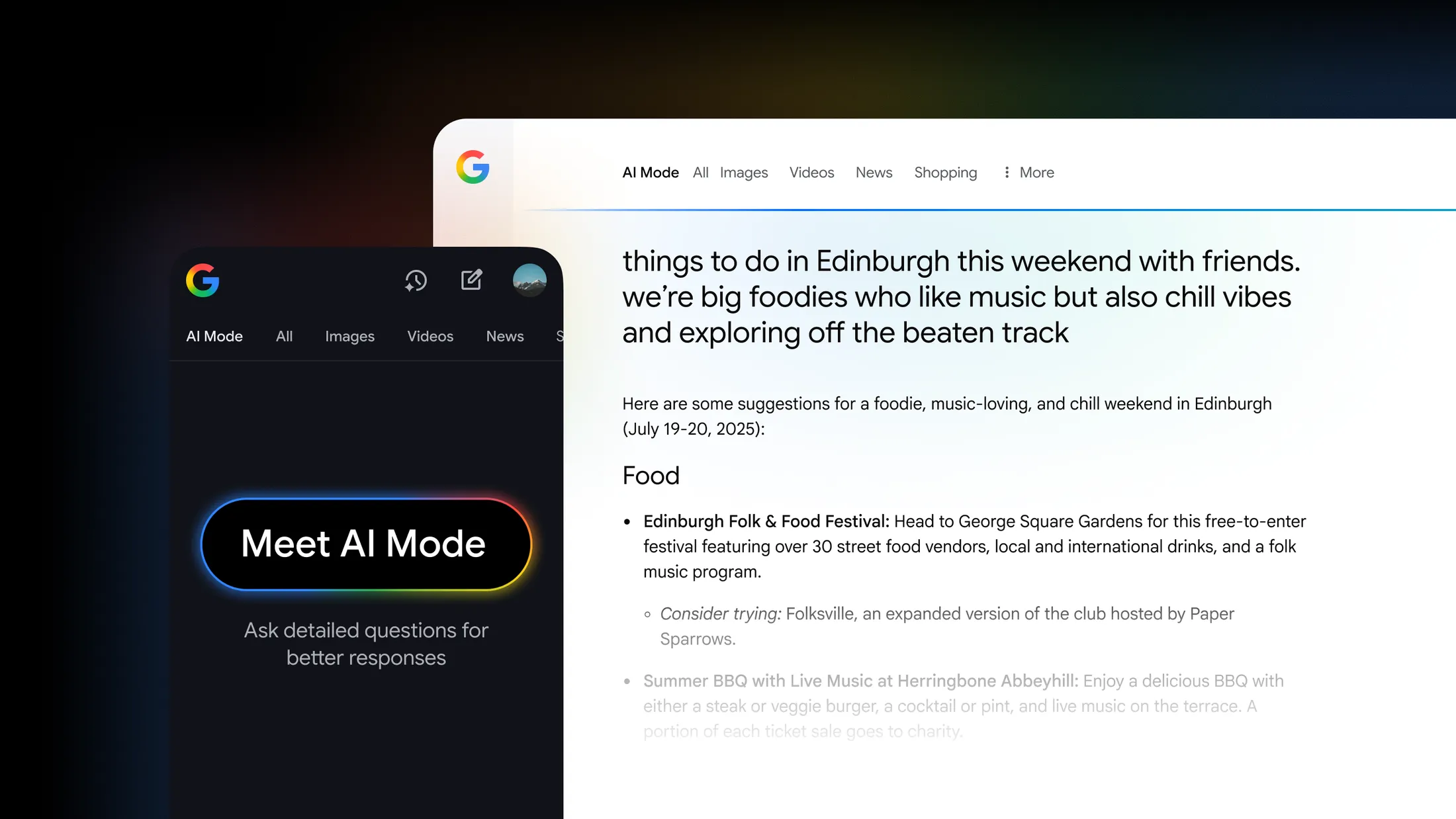Share

Google is set to revolutionize its search engine in the UK with the introduction of “AI Mode,” a new feature that generates conversational, AI-powered answers instead of the traditional list of blue links.
This significant shake-up, already live in the US and India, signals a major shift in how users might interact with online information.
Powered by Google’s Gemini AI platform, AI mode will be an optional feature appearing as both a tab and an in-search box option. It aims to address the growing trend of users turning to AI chatbots for quick answers to complex questions.
For instance, instead of a keyword-heavy search like “clean carpet stain,” users can now ask a more natural query such as, “I spilled coffee on my Berber carpet, I’m looking for a cleaner that is pet friendly.”
The core difference lies in the output: instead of a multitude of links, AI Mode provides a summarised, conversational answer with significantly fewer external links. While Google maintains this will “unlock newer information-seeking journeys,” this shift is causing considerable apprehension among existing publishers, retailers, and news organizations that heavily rely on traffic funnelled from Google’s traditional search results.
Concerns are mounting over the potential impact on advertising revenue and website traffic. The Daily Mail, for example, claims a 50% drop in Google search click-throughs since Google introduced its “AI Overview” feature, a precursor to AI Mode. While Google’s product manager for search, Hema Budaraju, stated that advertising revenue models for AI Mode are not yet finalised, the fear is that fewer direct links will result in fewer clicks to external websites.
A recent study by the Pew Research Centre indicates that users only clicked a link once in every 100 searches when an AI summary was present, a finding Google disputes. However, campaigners like Rosa Curling from Foxglove argue that even if AI summaries are sometimes inaccurate, users are less likely to click through to original sources, thereby undermining the business models of news organizations whose content is being summarised.
Google already generates over two billion AI Overview boxes daily in more than 40 languages (excluding the EU due to legislation). While the company emphasizes its commitment to sustainability despite the significant energy demands of AI, the overarching question remains: how will publishers, including Tech Digest, adapt to a search landscape where information is increasingly consumed directly within Google’s ecosystem, potentially bypassing their platforms entirely?
Related Posts
Discover more from Tech Digest
Subscribe to get the latest posts sent to your email.

